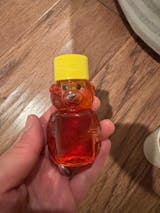
Why The Little Beekeeper honey is not labeled “organic” and what we do instead
Share
We get this question a lot. Short answer: our honey is raw, unheated, and 100% pure, but we do not label it organic. Here is why.
What “organic” means for honey
In the U.S., organic certification covers the whole beekeeping system. Certifiers look at:
- Where bees forage for nectar and pollen
- What is used on nearby land and crops
- How hives are managed and what materials touch the honey
- How the honey is handled and packaged
Bees can fly several miles to find flowers. To certify honey as organic, a certifier needs strong documentation that the forage area around the hives is free from prohibited pesticides and other non-allowed inputs. In real landscapes near mixed farms, roadsides, and neighborhoods, it is difficult to guarantee every flower is organic.
Why we choose not to label “organic”
- Honest transparency. We place hives near wildflowers and away from heavy spraying when possible, but we cannot control every bloom bees visit. Rather than claim “organic,” we choose to be clear about our practices.
- Local first. Our focus is North Carolina honey from our own hives and trusted partners. The certification process could raise costs without improving purity for our customers.
- Cost vs. benefit. Certification is expensive and would increase prices. We would rather invest in careful beekeeping and quality control you can taste.
Why some brands have “organic” on the label
Some U.S. brands source honey from countries where organic certification is more practical because of how local regulations and certifiers define organic beekeeping zones. Importers can buy lots that carry an organic certificate from those regions and then label the product as organic here.
This can be a valid certification path, but it is important to understand what the label does and does not mean:
- Organic certification is a process and paperwork claim. It relies on audits, documentation, and periodic testing. It is not a guarantee that every blossom visited by a bee was managed under organic rules.
- Bees can travel beyond mapped forage zones. Certification lowers risk of exposure to prohibited substances, but no one can promise zero exposure in nature.
- Rules and enforcement vary by country and by certifying body. The label reflects compliance with that specific program, not an absolute purity guarantee.
We prefer to be local and transparent about our practices rather than rely on an imported organic claim.
What we do to protect quality
- Raw and never heated. We do not heat our honey.
- Single, coarse filtration. We strain once to remove wax flecks and hive debris. This keeps the honey raw while improving shelf life and clarity.
- No feeding during harvest. Emergency feeding can happen in winter or during a nectar dearth for bee health. We do not feed when honey supers are on, and we do not harvest from colonies that are being fed.
- Clean handling. Food-grade equipment, careful extraction, and tidy bottling rooms.
- Small batch bottling. Flavor can vary with the seasons. That is the beauty of true, local honey.
Common questions
Does “not organic” mean the honey is less pure?
No. Our jars contain 100% honey, raw and unheated, with nothing added.
Why is the honey clear and liquid?
Fresh raw honey is naturally liquid. Over time it may crystallize. Crystallization is normal and actually a sign of raw honey. A warm water bath will gently reliquefy it.
What about pollen?
Raw honey contains trace pollen by nature. Since we use a coarse filter, it is normal to see a clear appearance while still keeping the honey raw.
Do you use chemicals in the hives?
We follow responsible, bee-first practices and integrated pest management. Any health-required treatments are chosen carefully and never during harvest.
Our promise
We will keep doing what we do best: caring for our bees, bottling raw honey with minimal handling, and being upfront about how it is made. If you ever want batch details or have questions, email support@thelittlebeekeeper.com. We would love to talk.



